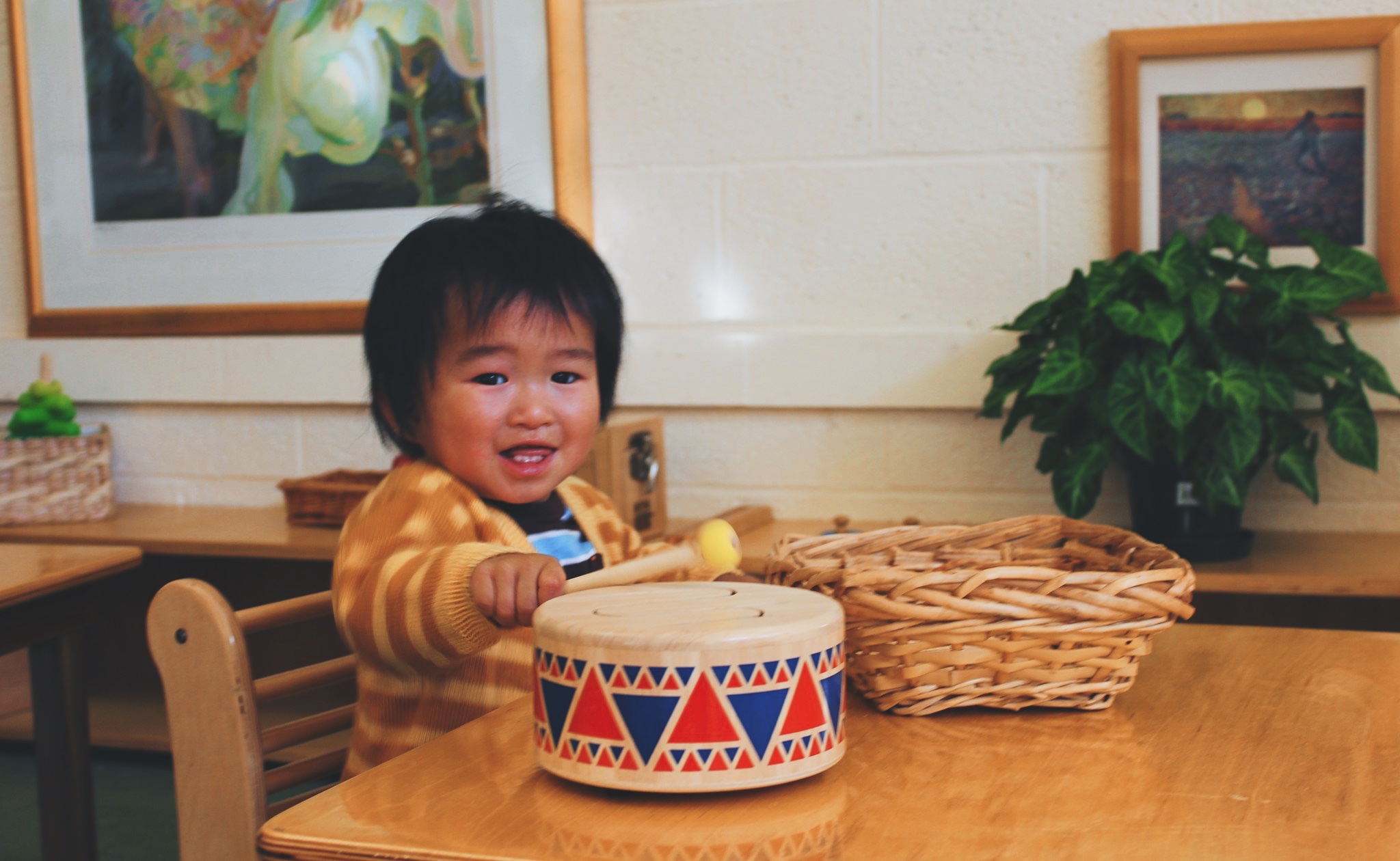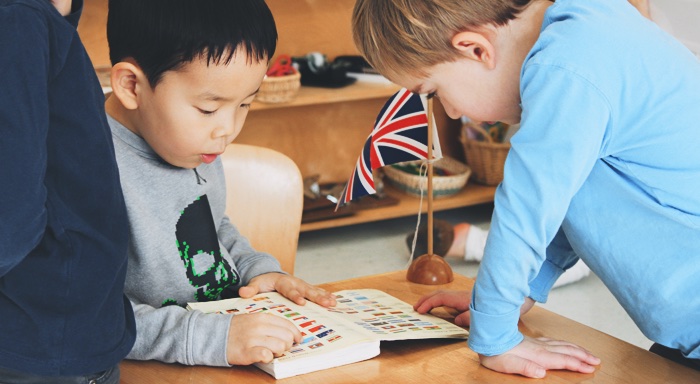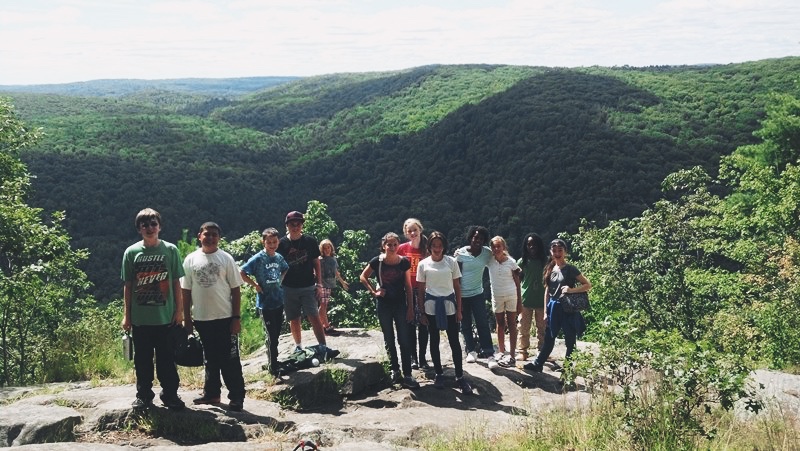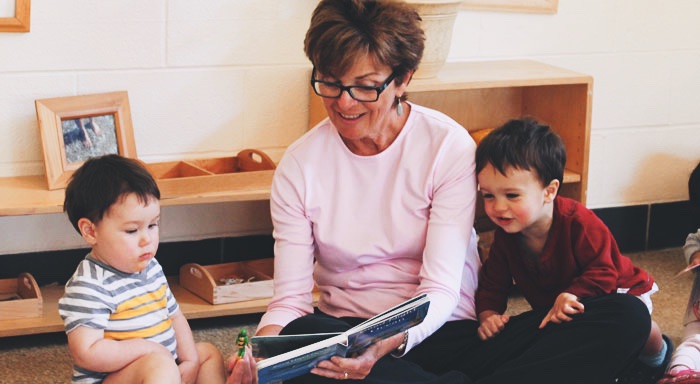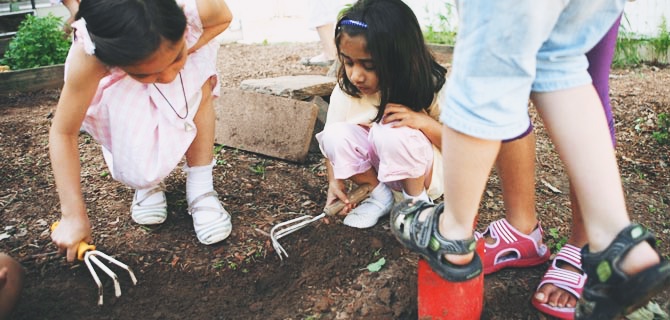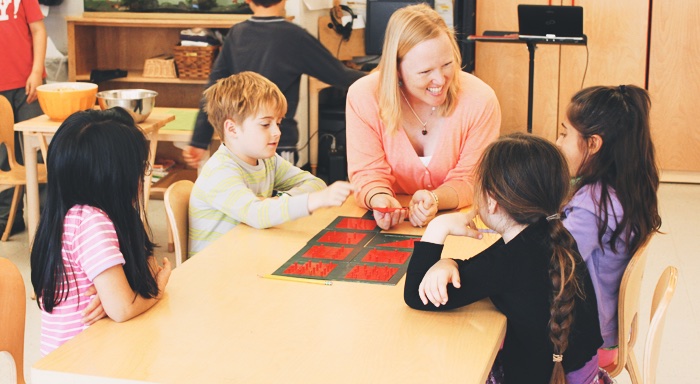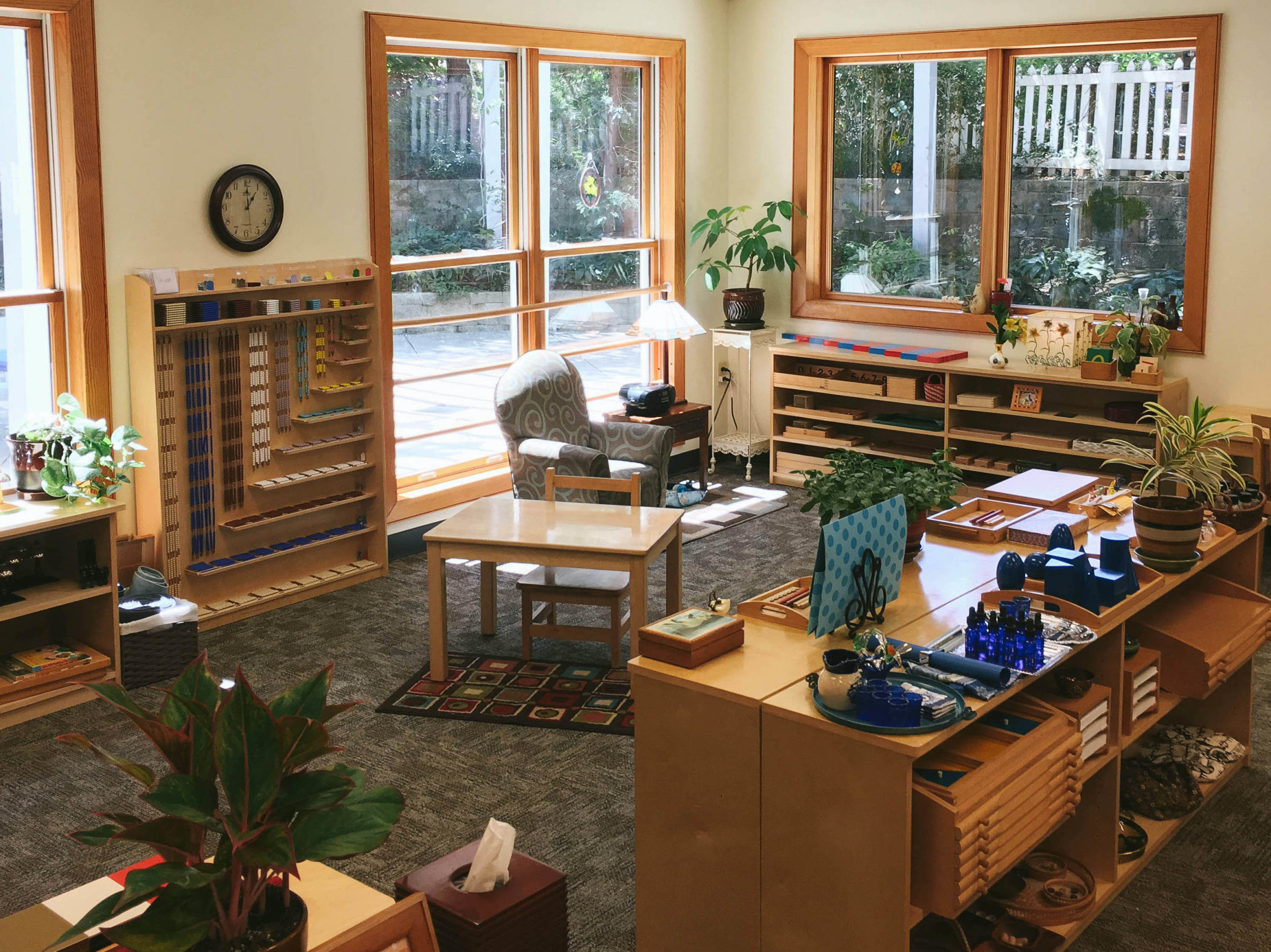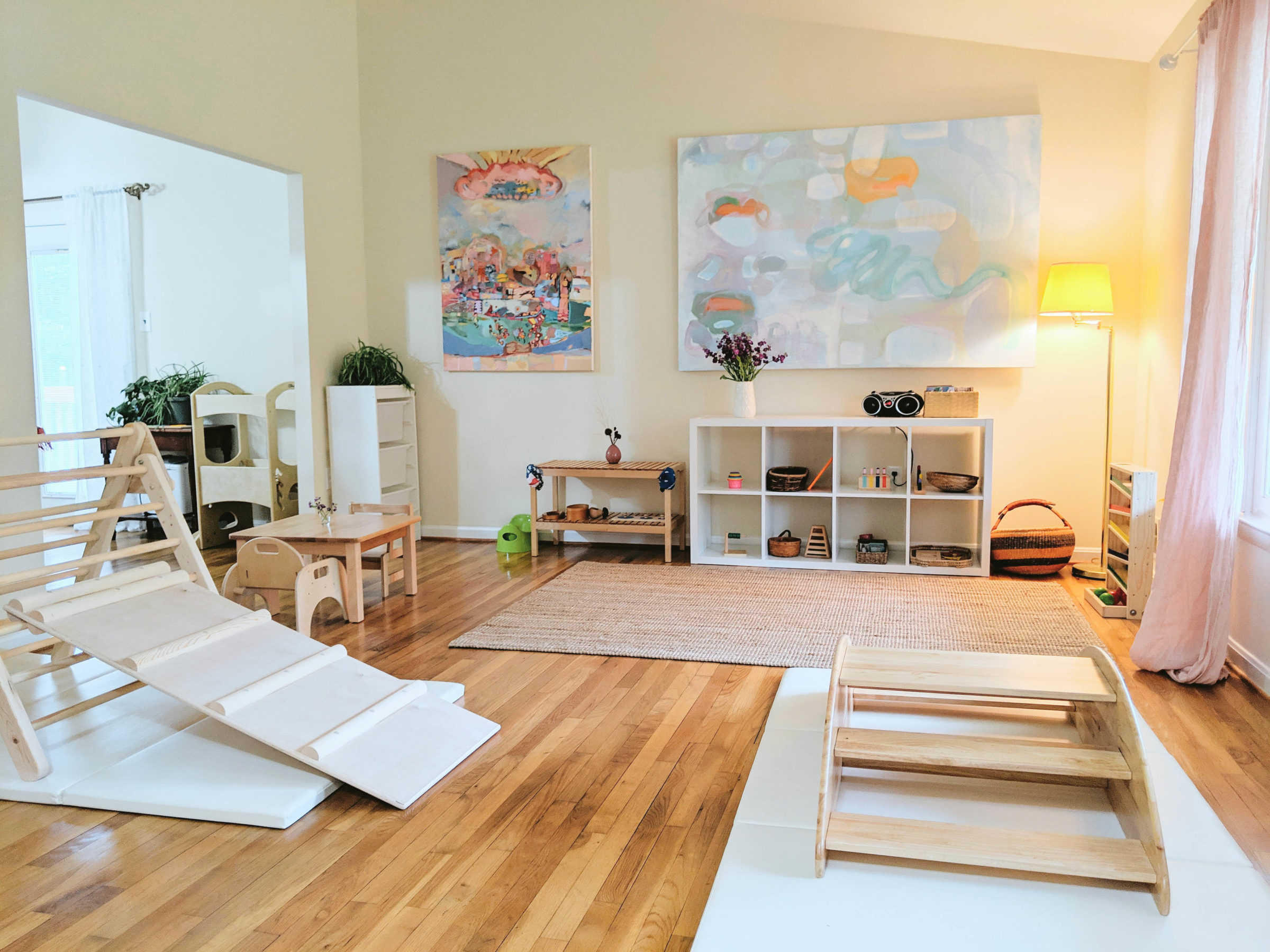Spotlight Montessori School of Greater Hartford
Spotlights
You never know where you might find inspiration. We probably should have expected that Ms. Una Barry, Head of School at the Montessori School of Greater Hartford, however, would provide just that, and more. Through her thoughtful, collaborative, measured and inspirational responses, we think you’re in for a treat. Before you get started, we thought we would take this opportunity to congratulate the Montessori School of Greater Hartford, who recently celebrated their 50th anniversary!
Q: Can you tell us a little bit about your relationship with Montessori? Your background, your interests, your aspirations?
A: My relationship with Montessori, that is such an interesting question, I never thought of it like that before. But I do have a relationship with Montessori, it is a great part of my life and I constantly equate life experiences with Montessori principals, much to my husbands and families chagrin, at times. Dr. Montessori was so far ahead of her time. Cutting edge research is constantly confirming what she observed to be true and I believe that future education in a more enlightened age will be Montessori. I also however believe that, that is a long way off yet. I learn something new about the depth and breadth of Montessori every day and how it relates to so many of the core truths of life.
“ Children and Montessori are my duel passions and I believe that the Montessori approach to life is the most respectful, natural means to support optimal child development. ”
I firmly believe that strong families make children strong and so I also have a drive to support, guide and validate families in parenting best practice while respecting all their idiosyncrasies and variety. I want to give parents’ permission to protect their child from the prevailing consumer culture of imposed agendas and extrinsic rewards as a means to life success.
I received my AMI Primary diploma from Montessori College, Sion Hill in Dublin Ireland in 1985. I am currently in my 11th year as Head of School at the Montessori School of Greater Hartford (MSGH). I have over 30 years’ experience working with children in various capacities. I am a state registered nurse in Ireland, and in my career have worked with children in various settings and with varied challenges.
Prior to becoming MSGH Head of School, I ran a Primary environment at the Montessori School of Greater Hartford (MSGH) for 9 years and then held the position of Program Coordinator for the school for a further 9 years. In my current role as Head of School, I spend much of my time supporting teachers in their work in the classroom, supporting parents in their parenting, and working with the Board on strategic initiatives. I am an AMI consultant and have the pleasure of visiting many schools in this capacity. I work on several Montessori related boards, including the Montessori Training Center of New England (MTCNE) located in Hartford, and am active in grassroots Montessori advocacy. I speak about Montessori every chance I get.
I can’t finish without saying that our school has had such a bumper year, this year. The 2014/15 school year sees us celebrating our 50th anniversary. We purchased our first permanent home and we opened our Eirdkinder Farm school on a beautiful farm, ½ an hour from our main campus. The farm school is so exciting for us and to top it off, every one of our graduates from Upper Elementary moved on to the farm.
Q: Montessori School of Greater Hartford has been a beacon for over 50 years. We love your logo, by the way. What advice might you have for new Montessori schools?
A: Thank you for the opportunity to share what I’ve learned with those starting out. There are so many factors to consider in setting up a school, but I think there are a few key elements that will set you, and keep you, on the path towards truly living your mission day to day and into the future.
Right from the get-go, decide who you want to be as a school. Do you primarily exist to support the self-construction of the child, or the needs of the parent? If you choose to have as your Primary mission to serve the optimal natural development of the child, then you have a clear path in Montessori principals and practice. Of course you must meet the needs of the parents, otherwise you will not have any children. But only in as much as it does not compromise the child’s self-construction and optimal development for that individual. Now you have to commit to that path and walk it every day in every decision you make, large and small. It is often the small unexamined decision that will set you on a path that is difficult to reset.
Several years ago, I undertook a course in leadership. The single most important thing I took from that experience was “hire tough and manage easy”. I have lived by this mantra in hiring practice since then.
“ When I hire, no matter what the position in our school, I hire for passion and like mindedness with our school philosophy and culture.”
I want to see a sparkle in the eye and an energy around children and their development. I look for what each individual will bring to our community. I always look for how this individual wants to grow, and how our community will support that growth. In this way, you will gather a dynamic group of people around you that will keep you on your toes and ensure you always move forward happily and passionately.
Interview parents before admittance, to ensure that they are mission-appropriate/ a good match for your school philosophy. Know the parents’ goals for their child and ensure that your schools can fulfill its mission while supporting those goals. Make sure you know the family’s parenting philosophy. Does it compliment the school’s philosophy? Is the family open to learning about the Montessori approach to life and interested in bringing it into their home? It is not in the child’s best interest to have completely opposing approaches at home and school. If this is the case and the parents are not inclined towards learning about Montessori principals then do not hesitate to let the parents know that your school is not a good match for the family philosophy.
As Montessorians, we are driven to save every child. However it is not always possible, particularly if the parents are not on board with what you know the child and the school need to make it work. Do not admit or hold on to a child you cannot serve. It is irresponsible.
Support your teachers. It can be lonely as a teacher when you have little feedback and guidance to support your ongoing development. Habits can be set that can get you off track. An informed objective observer, who can consistently offer constructive feedback and supportive guidance is a real must for an excellent Montessori school.
Establish sound operating policies based on best practice. Make sure everyone in your community knows and understands your policies and then stick to them.
Ask for help. Find a mentor school/ group / Head of School, that you respect and use them as a guide, and sounding board. You do not need to reinvent the wheel. There are many schools that are well established that will be happy to offer draft policies, documents; ask. A wonderful group to connect with is the Montessori Administrators Association (MAA) with members from all over the world on its list serve, you will have access to a feast of excellent information and advice.
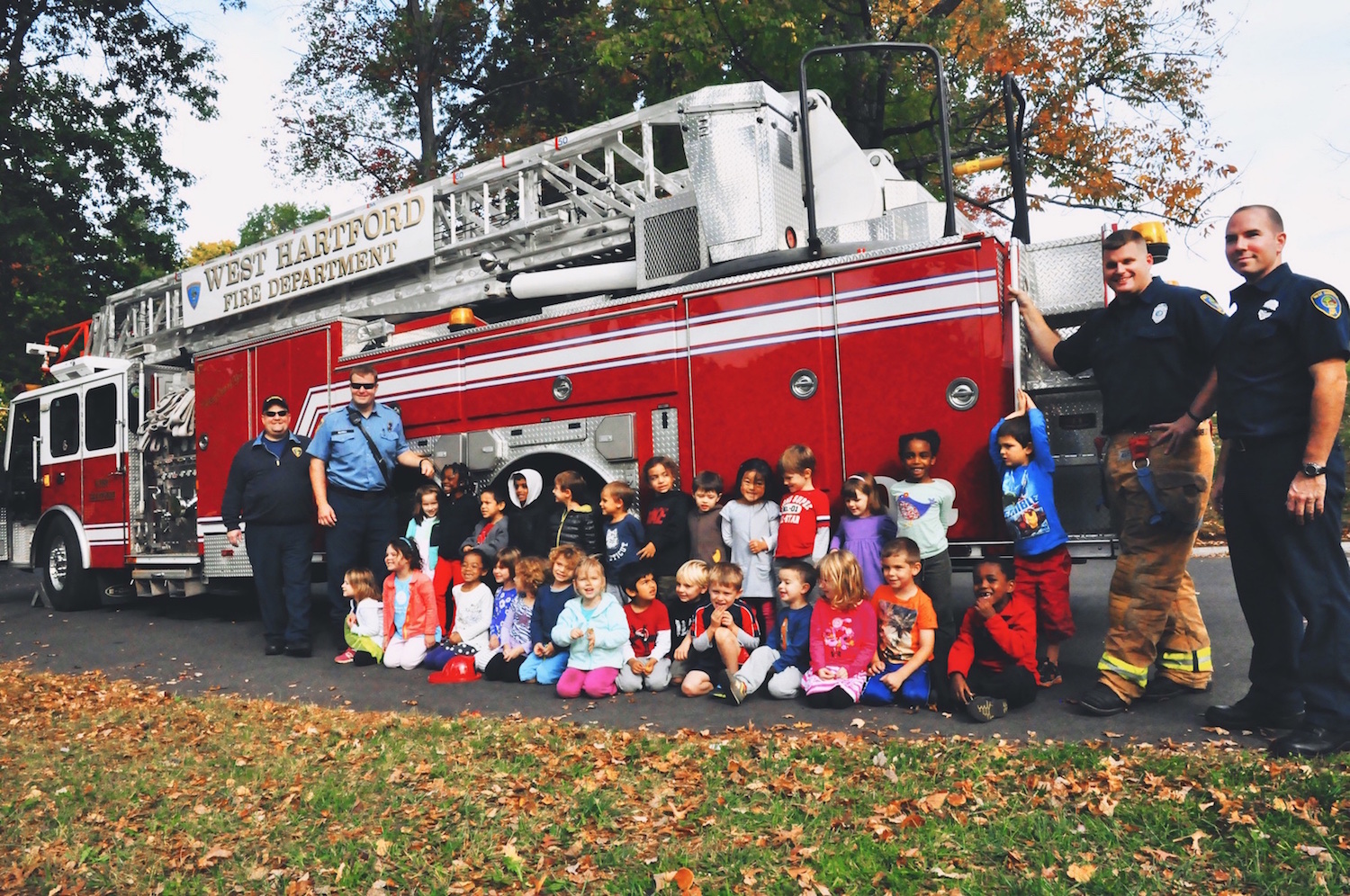
Q: With that in mind, we suppose the same question can be applied to established Montessori schools, especially with your experience?
A: All the above and STAY THE COURSE. In my opinion, be very thoughtful about your rate of growth. In the face of excitement around growth, look down the road to ensure sustainability. Think about maintenance of school culture when considering growth and be strategic, not reactive. Always, always keep your eye on the mission and the child, and you can’t go far wrong.
If you are non-profit, your biggest asset or worst problem can be your Board. Cultivate a board that truly understands the mission, their responsibilities and, very importantly, their role and its limits.
Q: How have things changed since you first got started in the field of education?
A: Wow, the only answer to that question is ‘more complicated’. There’s so much more emphasis on exposure to liability that touches every aspect of school operations. Parents are more worried about their children’s achievements and safety, particularly in CT right now. Parents need a lot of support and reassurance that their child will be okay. Even more important then, that we offer to our children, a haven in which they can slow down and become themselves in their own time and on their own agenda.
Q: Did you have a “Montessori Moment?”
A: I’ve had many, many Montessori moments over the years. When I read Dr. Montessori’s books, I have many ‘eureka moments’. So too when observing the children. It’s hard to choose one that’s my favorite. Maybe the simplest and perhaps most profound happened several years ago in a Primary environment. I was observing, and while I watched, a little 3 year old got up from her work to go to the bathroom. On her way back from the bathroom, without missing a step, she bend to pick up a bean from the floor. She continued to the shelf, placed the bean in the exercise to which it belonged and returned to her work, reengaging immediately. What I had observed was no less than citizenship. For what is citizenship but the exercise of self-discipline, responsibility, selfless work in service of the community. All of these wonderful attributes, combined with that 3 year old sense of order, served to create a contributing citizen who unconsciously served. Imagine the possibilities, if all children had the opportunity to grow in such an environment, ergo Dr. Montessori’s Education for Peace.
Q: Not unlike Maria Montessori, we noticed you have a background in medicine. How has this shaped your relationship with education?
A: I nursed for several years in a hospital setting as a general nurse . Following that I spent the rest of my nursing career working with children with many different challenges in various settings, orphaned children, children with severe emotional disturbance, language disorders, autism and all levels of mental handicap. When I came to Montessori, I think my nursing experience afforded me more insight into individual children’s broader needs. I was alert to obstacles in the way of a child’s learning, physically and cognitively, and could address them or find the help required to support them more quickly. Basically I think I had more tools and information at my disposal, than had I not had this previous experience..
Q: Your missions statements says, “The Montessori School of Greater Hartford fosters a strong foundation for confident, compassionate participation in the world by nurturing each child’s unique gifts, passion for learning, and independence.” How do you hope this participation will manifest in your local, and in turn, our global community? In other words, what kind of legacy would you hope to impart to students?
A: I truly believe that children, allowed to self-construct naturally in a supportive environment, do so optimally. This is what an excellent Montessori environment and guide, combined with positive, conscious parenting, facilitates. I see these children as catalysts for peace; the pebble in the local and global community pond, putting out ever-increasing ripples of understanding, tolerance, appreciation and joy. As Dr. Montessori expressed “An education capable of saving humanity is no small undertaking; it involves the spiritual development of man, the enhancement of his value as an individual, and the preparation of young people to understand the times in which they live.” (Education and Peace). I believe that this is our ultimate mission in Montessori, to cultivate peace, through each child.
Q: What’s your favorite education related quote?
A: This is always so difficult; I have many favorites. I choose the following quote today because it strikes me that Dr. Montessori wrote this 100 years ago, and it is still prophetic, “Education should not limit itself to seeking new methods for a mostly arid transmission of knowledge: its aim must be to give the necessary aid to human development…. If ‘the formation of man’ becomes the basis of education, then the coordination of all schools from infancy to maturity, from nursery to university, arises as a first necessity: for man is a unity, an individuality that passes through interdependent phases of development. Each preceding phase prepares the one that follows, forms its base, nurtures the energies that urge towards the succeeding period of life.” (From Childhood to Adolescence, p. 84)
Q: What do you think is the best introduction to Montessori?
A: Hands down, an observation in a normalized Montessori classroom. You can talk ‘til your blue in the face and you will never explain what a moment in the classroom will achieve. To the layman, probably the most impactful observation will be at the Toddler level. I have been talking to my husband about Montessori for many years. Only recently did he have the opportunity to observe a Toddler classroom in action. He was utterly stunned. He talked about it for days, to anyone who would listen. He could not get over what these little people were doing with confidence and capability. This from a guy who has been listening to me for years, or, wait a minute, has he?
Q: What continues to inspire you about Montessori?
A: Every day, I am inspired by how Montessori allows the true nature of the child to reveal itself. The Montessori principals are life truths, they touch the very core of the human experience. They are founded in a profound respect for, and trust in, the brilliance of nature.
Q: As Head of School, as well as mentor and Consultant with AMI, you have a unique perspective of the greater Montessori community. What do you see being the future of Montessori education? And, perhaps more importantly, what do you hope for the future?
A: My belief and hope are one and the same. I see Montessori (or at least the principals of Montessori) as the future of education; it is inevitable. Information is at our fingertips, literally. The digestion and regurgitation of information is already outdated and the research and the demands of the future are already pointing the way towards an education that serves a much broader function than conventional education delivers today. The pace of change is so incredible that future futures will become increasingly difficult to predict. Education will be forced to focus on the development of the inner capacities of the human being. The future child will be required to be nimble and flexible, independent and confident, a self-starter and an outside the box thinker. This is the Montessori gift, adaptation, a drive to explore and discovery, a willingness to go out there and try, fail and try again. This is what has allowed our species to evolve and survive, we will need it in spades to go into the future. Montessori is the answer and it’s here, now.
Q: When you close your eyes late at night, and imagine waking up and starting a new adventure: what is that adventure?
A: Travel, my other passion. I desperately want to see as much of the world as possible. I want to see everything. Now, I just have to make it happen.
Thank you!
We hope you enjoyed this spotlight. When you have a moment, you should visit their school: http://www.msgh.org
Written by:
Baan Dek
